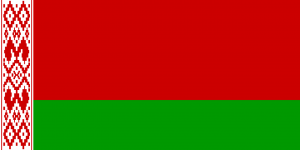Difference between revisions of "Language/Belarusian/Grammar/How-to-Use-Have"
m (Quick edit) |
m (Quick edit) |
||
| Line 56: | Line 56: | ||
|description=In this lesson, we will learn how to use the verb "have" in Belarusian. We will look at the conjugation of the verb and how it is used in different contexts. | |description=In this lesson, we will learn how to use the verb "have" in Belarusian. We will look at the conjugation of the verb and how it is used in different contexts. | ||
}} | }} | ||
==Related Lessons== | |||
* [[Language/Belarusian/Grammar/Questions|Questions]] | |||
* [[Language/Belarusian/Grammar/Possessive-Pronouns|Possessive Pronouns]] | |||
* [[Language/Belarusian/Grammar/Personal-Pronouns|Personal Pronouns]] | |||
* [[Language/Belarusian/Grammar/Adverbs|Adverbs]] | |||
* [[Language/Belarusian/Grammar/Pronouns|Pronouns]] | |||
* [[Language/Belarusian/Grammar/Nouns|Nouns]] | |||
* [[Language/Belarusian/Grammar/Negation|Negation]] | |||
* [[Language/Belarusian/Grammar/Adjectives|Adjectives]] | |||
* [[Language/Belarusian/Grammar/Conditional-Mood|Conditional Mood]] | |||
{{Belarusian-Page-Bottom}} | {{Belarusian-Page-Bottom}} | ||
Revision as of 00:32, 2 March 2023
Hi Belarusian learners! 😊
In this lesson, we will learn how to use the verb "have" in Belarusian. We will look at the conjugation of the verb and how it is used in different contexts.
Conjugation
The verb "have" in Belarusian is маць (mac'). It is an irregular verb, so it does not follow the usual conjugation rules. Here is the conjugation of the verb "have" in the present tense:
| Person | Belarusian | Pronunciation | English |
|---|---|---|---|
| I | маю | ma-yu | have |
| You (singular) | маеш | ma-yesh | have |
| He/She/It | мае | ma-ye | has |
| We | маем | ma-yem | have |
| You (plural) | маеце | ma-yets-e | have |
| They | маюць | ma-yuts | have |
Usage
The verb "have" is used in many different contexts in Belarusian. Here are some examples of how it is used:
- To express possession:
- Person 1: У мяне ёсць друг (u mya-ne yos-ts' druk) (I have a friend)
- Person 2: Я маю друга (ya ma-yu dru-ga) (I have a friend)
- To express obligation:
- Person 1: Мне трэба мець домашнюю работу (mnye tre-ba me-ts' doma-shnyu-yu ra-bo-tu) (I have to do my homework)
- Person 2: Я маю зрабіць домашнюю работу (ya ma-yu zra-bi-ts' doma-shnyu-yu ra-bo-tu) (I have to do my homework)
- To express age:
- Person 1: Я маю двадзесят гадоў (ya ma-yu dva-dze-syat ga-dov) (I am 30 years old)
- Person 2: Я маю трыдзесят гадоў (ya ma-yu try-dze-syat ga-dov) (I am 30 years old)
Practice
Now that you know how to use the verb "have" in Belarusian, let's practice using it in sentences. Try to create your own sentences using the conjugation table above. Here are some examples to get you started:
- Я маю два браты (ya ma-yu dva bra-ty) (I have two brothers)
- Яна мае друга (ya-na ma-ye dru-ga) (She has a friend)
- Мы маем дамовіну (my ma-yem da-mo-vi-nu) (We have a tradition)
- Вы маеце дам (vy ma-yets-e dam) (You have a house)
- Яны маюць друга (ya-ny ma-yuts dru-ga) (They have a friend)
➡ If you have any questions, please ask them in the comments section below.
➡ Feel free to edit this wiki page if you think it can be improved. 😎
Related Lessons
- Questions
- Possessive Pronouns
- Personal Pronouns
- Adverbs
- Pronouns
- Nouns
- Negation
- Adjectives
- Conditional Mood
